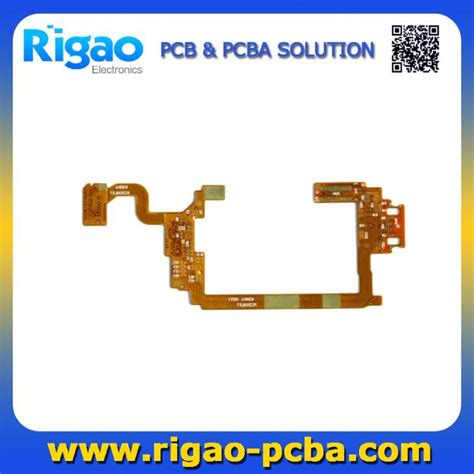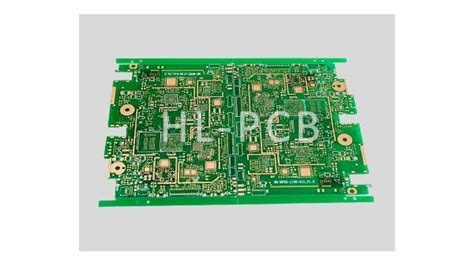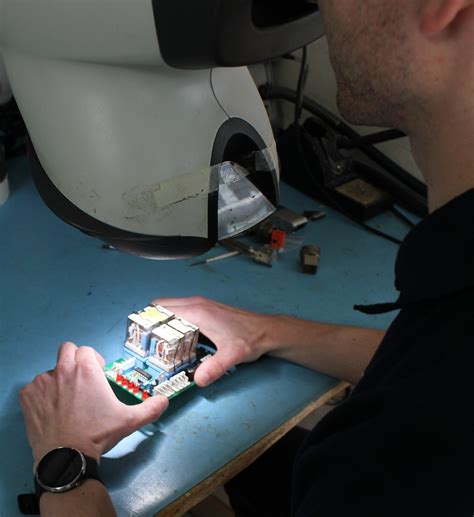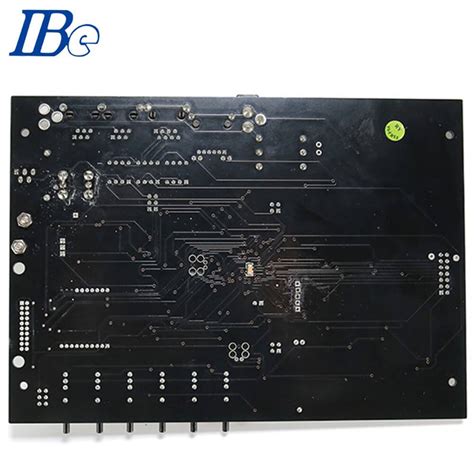Top Suppliers for Blank PCB Boards: Your Ultimate Guide
Key Takeaways
When selecting a blank PCB board supplier, understanding the complexities of PCB manufacturing is vital to the success of your projects. You may want to delve into the types of PCB boards available, each suited for different applications, which can influence your choice. Different pcb manufacturing companies often specialize in specific types of boards that cater to particular industries, so it’s essential to match the supplier’s strengths with your project requirements. Pricing is another crucial factor; pcb manufacturing costs can vary significantly based on materials, quantities, and complexity. Evaluating the reliability and quality assurance processes of these suppliers will help ensure you receive a product that meets industry standards while avoiding costly mistakes in your pcb manufacturing business. Engage with potential suppliers by asking critical questions about their processes, materials used, and any certifications they hold. This due diligence can not only streamline the selection process but also set you on a path toward a successful collaboration. Remember, staying updated on industry trends will allow you to make informed decisions that align with market dynamics and customer needs as you navigate your PCB projects.
Top Factors to Consider When Choosing a Blank PCB Board Supplier
When selecting a blank PCB board supplier, there are several key factors that can significantly influence your decision. First and foremost, you should assess the reputation of the supplier within the industry. Researching reviews and testimonials can provide insight into the experiences of other customers. Additionally, it’s essential to determine whether the supplier specializes in PCB manufacturing or offers a broader range of products. This specialization can indicate their level of expertise and commitment to quality.
Next, consider the materials used in their production process. Different suppliers may utilize varied materials affecting both performance and cost. Understanding these differences not only helps in comparing suppliers but also aids in ensuring that your project meets specific requirements.
In terms of pricing, you must evaluate the PCB manufacturing cost related to each supplier. It’s advisable to request quotes from multiple sources for a comprehensive understanding, considering factors such as volume discounts, shipping fees, and potential hidden costs.
Moreover, understanding the lead times for production is crucial. Reliable suppliers provide clear timelines and adhere to them consistently—this is an essential aspect of managing your own projects effectively without unnecessary delays.
Lastly, always make sure to engage with potential suppliers using questions that reveal their customer service approach and production capabilities. Essential questions might include inquiries about their quality assurance processes or experience with specific types of projects relevant to your business needs.
| Factor | Considerations |
|---|---|
| Reputation | Industry reviews & customer testimonials |
| Specialization | Focus on specific types of PCBs vs broader offerings |
| Materials | Types used & effect on performance/cost |
| Pricing | Comprehensive quotes including discounts & hidden fees |
| Lead Times | Production schedules & reliability |
| Customer Service | Responsiveness & quality assurance processes |
By carefully considering these factors, you will be better positioned to choose a blank PCB board supplier that aligns with your needs and contributes positively to your PCB manufacturing business objectives.
Types of Blank PCB Boards: A Comprehensive Overview
When it comes to selecting blank PCB boards, understanding the different types available is crucial for optimizing your pcb manufacturing processes. You might encounter several varieties, each tailored for specific applications. Single-sided PCBs, for instance, can be ideal for simpler electronic projects since they have conductive pathways on one side only. On the other hand, double-sided PCBs provide greater design flexibility by allowing components to be mounted on both sides, which is particularly useful in compact electronics.
Multi-layer PCBs take it a step further by stacking multiple layers of circuitry. These are often used in advanced electronics where functionality and performance are paramount. As you navigate your options, consider how the choice of board type might affect your overall pcb manufacturing cost. Some boards may be more economical than others but could compromise on quality or durability.
Furthermore, when engaging with pcb manufacturing companies, inquiring about the specific capabilities and materials they utilize can shed light on what to expect in terms of production timelines and costs. The choice of materials plays a significant role in not just durability but also in how well the board performs under various conditions. It’s essential to comprehend these types and their characteristics to make informed decisions that elevate your electronic projects effortlessly while managing your pcb manufacturing business effectively.
Understanding Materials Used in Blank PCB Manufacturing
When it comes to pcb manufacturing, the choice of materials plays a pivotal role in determining the performance and reliability of the final product. Typically, blank PCB boards are crafted from several foundational materials, each contributing its unique characteristics. The most commonly used substrate is FR-4, a composite material made from woven fiberglass cloth and epoxy resin. This combination provides a balance of durability and electrical isolation, making it a popular choice among pcb manufacturing companies.
In addition to FR-4, you might encounter materials like CEM-1 and CEM-3, which are designed for lower costs but may compromise on some performance aspects compared to FR-4. If your project demands high-frequency or high-temperature applications, consider options such as PTFE (Teflon) or polyimide materials, which are specifically tailored for such environments and generally come with a higher pcb manufacturing cost.
“Understanding the diverse range of materials available can help you select the right type for your specific application.”
Ultimately, the selection process should align with your project’s functional requirements and budget constraints to ensure that you choose a supplier who can deliver quality products while supporting your pcb manufacturing business. By prioritizing these material insights during supplier evaluation, you will position yourself for successful electronic project outcomes.
Comparative Pricing: What to Expect from Blank PCB Suppliers
When exploring blank PCB board suppliers, it’s essential to understand that the pcb manufacturing cost can vary widely based on several factors. First, consider the volume of your order; larger quantities often lead to significant discounts due to reduced overall production costs. Additionally, factors such as complexity, layer count, and material choice influence pricing. For instance, multilayer boards typically come at a higher pcb manufacturing cost compared to simpler designs due to their intricate pcb manufacturing processes.
You should also research the reputation of different pcb manufacturing companies to ensure you are getting a fair price for quality products. Different suppliers may have varying pricing based on capabilities, lead times, and service levels. Engaging with established companies can often provide insight into standard market rates and discounts available for bulk orders.
It’s crucial to weigh the balance between cost and quality when selecting a supplier for your PCB needs. Investing in reliable products from seasoned players in the pcb manufacturing business may offer long-term savings by reducing defects and improving overall project efficiency. By being informed about potential costs and supplier offerings, you position yourself better in negotiations and procurement processes, ensuring you get the most value out of your investment in blank PCBs.
Evaluating Supplier Reliability and Quality Assurance
When selecting a blank PCB board supplier, one of the most crucial factors to assess is their reliability and the quality of their PCB manufacturing processes. You should consider their track record and reputation within the industry. Reading customer reviews and obtaining references can provide insight into the experiences of other businesses. Additionally, evaluating the certifications they possess, such as ISO standards, can help gauge their commitment to quality assurance. It’s vital to ensure that they utilize appropriate testing and inspection methods throughout their PCB manufacturing processes to minimize defects.
Furthermore, transparency about pcb manufacturing costs is significant; suppliers should provide clear information regarding pricing structures without hidden fees. When engaging with different PCB manufacturing companies, inquire about their production lead times and how flexible they are when it comes to order sizes, as these factors can greatly impact your project’s timeline. Reliability also extends to customer service—prompt responses to inquiries can be a good indication of how well you will be supported throughout your collaboration.
Ultimately, by thoroughly assessing these aspects, you can make informed decisions when selecting a supplier that will not only meet your specific needs but also help elevate your electronic projects effectively. Engaging with suppliers who prioritize quality assurance will likely lead to a more successful outcome in your pcb manufacturing business.
Essential Questions to Ask Your Blank PCB Board Supplier
When you begin sourcing from pcb manufacturing companies, it’s essential to ensure you ask the right questions to make an informed decision. Start by inquiring about their experience in the pcb manufacturing business and how long they have been producing blank PCB boards. This will give you insights into their proficiency and reliability. Additionally, ask about their pcb manufacturing cost and whether they offer bulk pricing or discounts for large orders. Understanding their pricing structure will help you budget effectively for your projects.
Another important aspect to explore is the range of materials they use in the production of blank PCB boards. Material quality significantly influences the board’s performance and durability, so don’t hesitate to request details on their sourcing methods for materials used in pcb manufacturing. It’s also beneficial to inquire about any certifications or quality assurance processes they have in place. This will help assure you that they maintain a high standard in their production practices.
Lastly, elevate your collaboration by asking about lead times and how they handle communication throughout the order process. A supplier that values efficient communication can make a significant difference in your project’s success. By addressing these essential queries, you can be more confident in choosing a supplier that meets your needs effectively and supports your electronic projects with high-quality blank PCB boards.
Industry Trends Impacting the Blank PCB Market
The blank PCB market is witnessing several transformative trends that are reshaping the landscape of PCB manufacturing. As you navigate through potential suppliers, it’s crucial to be aware of these trends to make informed decisions. Firstly, the rise of smart technology and IoT devices has significantly fueled demand for high-quality blank PCBs. This demand compels PCB manufacturing companies to innovate and enhance their production processes, focusing on quality and efficiency to meet evolving requirements. Another trend to consider is the growing emphasis on sustainability in manufacturing processes. Many suppliers are now adopting environmentally friendly practices that minimize waste and reduce PCB manufacturing costs. Additionally, geopolitical factors and supply chain fluctuations can affect availability and pricing, making it essential for you to assess the reliability of your potential suppliers thoroughly. By understanding these industry dynamics, you can better evaluate which suppliers align with your project’s needs in terms of both specifications and financial considerations, ultimately elevating your electronic projects effortlessly while fostering a successful relationship with the PCB manufacturing business that best suits your objectives.
Tips for Successful Collaboration with Your PCB Supplier
Working closely with your PCB supplier is essential to ensure the success of your projects. Start by establishing clear communication, defining your requirements and expectations from the outset. This includes specifications for your blank PCB boards, such as size, layers, and any unique features. Providing detailed documentation will help minimize misunderstandings and keep the PCB manufacturing process on track.
Moreover, understanding the technical capabilities of various PCB manufacturing companies is crucial. This knowledge allows you to select a supplier that aligns with both your project needs and budget constraints. During discussions, inquire about their experience in producing similar projects; this can give you insight into their reliability.
When discussing pcb manufacturing cost, don’t solely focus on the price per unit; consider other factors like lead times, shipping, and customer support. Having an open dialogue regarding these aspects will contribute to a smoother working relationship.
You should also remain flexible and open to feedback from your supplier regarding design adjustments or material specifications—remember that they have valuable expertise in PCB technologies that might enhance your product.
Ultimately, fostering a collaborative environment can lead to innovations that enhance not only the quality of your pcb manufacturing business but also potentially reduce costs associated with failures or redesigns down the line.
Conclusion
Choosing the right blank PCB board supplier can significantly impact your projects within the PCB manufacturing realm. As you explore various pcb manufacturing companies, it’s essential to consider factors such as quality, pricing, and reliability. Understanding pcb manufacturing costs can help you allocate your budget effectively while ensuring you receive high-quality materials tailored to your specific needs. When engaging with potential suppliers, inquire about their experience and past projects to gauge their expertise in the pcb manufacturing business. A reliable supplier will not only provide you with quality boards but also support your production needs and help troubleshoot potential challenges. By keeping these elements in mind, you can pave the way for successful electronic projects that stand out in today’s competitive market.
FAQs
What is the average pcb manufacturing cost?
The average pcb manufacturing cost varies depending on several factors, including complexity, size, and quantity. Typically, smaller orders may have a higher cost due to setup fees.
How do I choose reliable pcb manufacturing companies?
When evaluating pcb manufacturing companies, consider their reputation, customer reviews, and certifications. Checking their production quality and on-time delivery rates also helps.
What materials are commonly used in pcb manufacturing?
Common materials for pcb manufacturing include FR-4, CEM-1, and aluminum. Each material has distinct properties suited for specific applications.
How can I get a quote from a pcb manufacturing business?
To obtain a quote from a pcb manufacturing business, provide detailed specifications of your project. Typically, this includes dimensions, layer count, and any particular requirements.







